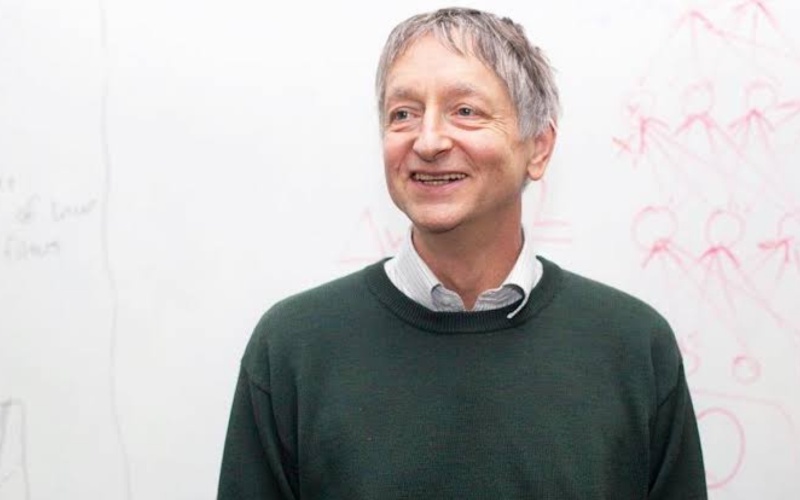A man widely regarded as the father of artificial intelligence (AI) has resigned from his position in order to raise awareness of the mounting risks posed by the field’s advancements.
Geoffrey Hinton, 75, told the New York Times in a statement that he was leaving Google and that he now regretted his work.
He described some of the risks posed by AI chatbots as “quite scary”.
“Right now, they’re not more intelligent than us, as far as I can tell. But I think they soon may be.”
In addition, Dr. Hinton acknowledged that his advanced age had influenced his choice to depart the tech behemoth, telling the BBC that “I’m 75, so it’s time to retire.”
Current AI systems like ChatGPT are the result of Dr. Hinton’s groundbreaking work in the fields of neural networks and deep learning.
Neural networks are artificial intelligence (AI) systems that learn and process information similarly to the human brain.
They allow AIs to experience learning, just like a person would. Deep learning is the term for this.
According to the cognitive psychologist and computer scientist who is British and Canadian, chatbots may soon surpass the amount of knowledge that a human brain can store.
“Right now, what we’re seeing is things like GPT-4 eclipses a person in the amount of general knowledge it has and it eclipses them by a long way. In terms of reasoning, it’s not as good, but it does already do simple reasoning,” he said.
“And given the rate of progress, we expect things to get better quite fast. So we need to worry about that.”
Dr. Hinton made reference to “bad actors” who would try to exploit AI for “bad things” in the New York Times article.
When prompted by the BBC to elaborate, he responded: “This is just a kind of worst-case scenario, kind of a nightmare scenario.
“You can imagine, for example, some bad actor like [Russian President Vladimir] Putin decided to give robots the ability to create their own sub-goals.”
The scientist warned that this eventually might “create sub-goals like ‘I need to get more power'”.
He added: “I’ve come to the conclusion that the kind of intelligence we’re developing is very different from the intelligence we have.
“We’re biological systems and these are digital systems. And the big difference is that with digital systems, you have many copies of the same set of weights, the same model of the world.
“And all these copies can learn separately but share their knowledge instantly. So it’s as if you had 10,000 people and whenever one person learnt something, everybody automatically knew it. And that’s how these chatbots can know so much more than any one person.”
Speaking in his own role to the BBC, Matt Clifford, the chairman of the UK’s Advanced Research and Invention Agency, said that Dr. Hinton’s statement “underlines the rate at which AI capabilities are accelerating.”
“There’s an enormous upside from this technology, but it’s essential that the world invests heavily and urgently in AI safety and control,” he said.
Dr. Hinton joins an increasing number of scientists who have voiced worries about AI, including the rate at which it is evolving and its future course.


